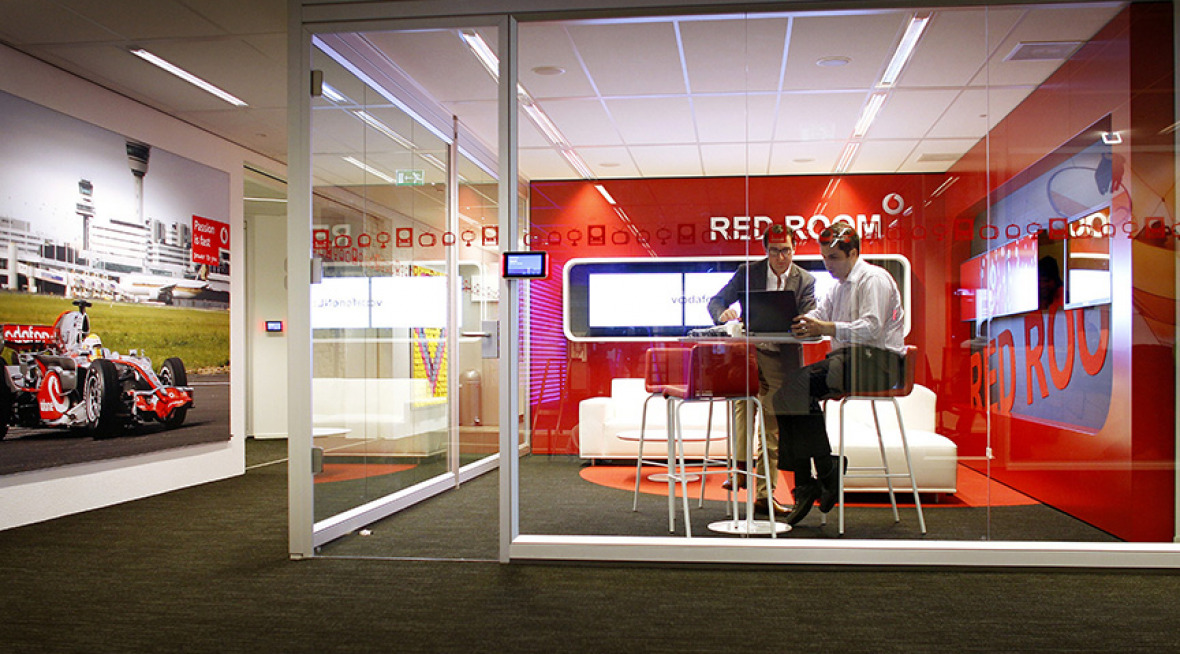We use cookies to maximize your online experience with us. By closing this window, you consent to our cookie policy. You can change your cookie settings in your browser any time. For more information, please see our Privacy Policy located on the footer of this site.
Vodafone Successfully Transitions to a New Organizational Work Environment.


Companies everywhere are scrambling to adapt to a more global, mobile, and collaborative business model. Few companies, however, are taking advantage of these changes like Vodafone, the world’s leading international mobile telecommunications group. A critical factor is how they’re creatively using space to nurture a new work culture.
When planning to move its Netherlands headquarters to Amsterdam, Vodafone leadership wanted the workplace to exemplify a mobile workstyle, leverage the power of place for collaborative knowledge work, attract and retain top talent, and demonstrate the company brand.
Vodafone partnered with Steelcase Applied Research & Consulting (ARC), the global work and workplace consultancy, to assist them in this major transition in their work culture and in embracing alternative work strategies (AWS). These changes would be implemented at a new workplace in QPort, a beta site where they could refine their workplace strategies in preparation for building permanent offices in Ode, another part of Amsterdam.
AWS address mobility, wireless technology, and knowledge work in ways that both maximize real estate and help workers be most effective, but these new approaches drive major changes in the organization and raise a critical question: how much change is the organization ready and able to make?
“Many companies are not ready to redefine or transform the essence of their organization. But for those organizations who truly want to make changes of this magnitude, there are four prerequisites,” notes John Hughes, ARC principal and member of the engagement with Vodafone. They are:
- leadership actively engaged in the process
- staff involved at all levels
- a workplace solution validated before implementation
- an effectively managed transition
Working with Vodafone management and staff, the ARC team used a series of proprietary diagnostic and user engagement tools to measure the company’s readiness and willingness to embrace change in work processes, technology, human resources, and work space.
A key part of the planning process was gathering employee input through a series of ARC-led interviews, surveys, and workshops. “Involving staff throughout the organization gave us a kind of sanity check on what we were proposing,” notes Paul Smits, director of human resources, property, and security for Vodafone NL, who led the project. “Even more important, once we determined our design strategy and transition plans, it helped build buy-in throughout the company for major changes.”
ARC also detailed the company’s culture, or “personality,” as viewed by various stakeholders in the organization, to define their preferred culture, and to identify any gaps between management and staff perceptions. Both Vodafone leadership and staff desired more emphasis on innovation, placed a greater value on effectiveness than efficiency, wanted to encourage more teamwork, and placed less emphasis on a market-driven culture. At the work environment level, this translated into space that would:
- encourage communication and collaboration
- live the brand by showcasing Vodafone products and mobile work
- create a neighborhood atmosphere
- offer social spaces for interaction
- provide more color and light
- support a healthy lifestyle
- deliver a “wow” factor
Using the insights gain through the ARC tools and processes, Vodafone’s global space standards, as well as learnings from the global real estate group the team created a new workplace strategy—and a remarkable new workplace.
Read entire article here!
